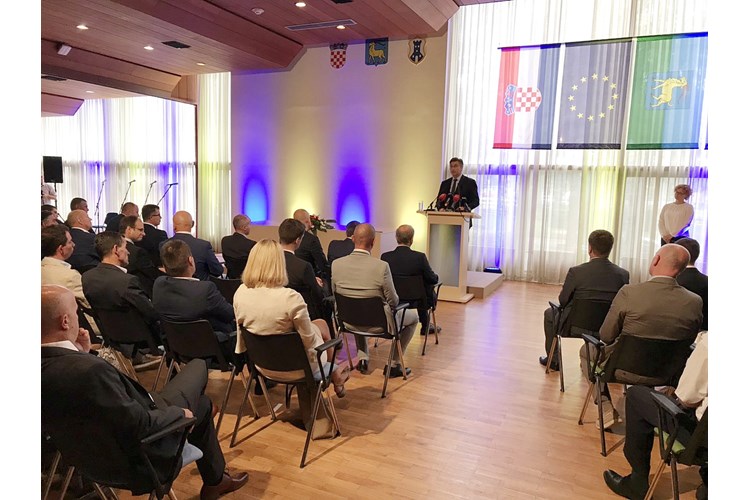


"In Croatia, all should feel good, regardless of their ethnic background", and this government is pursuing the policy aimed at creating a society offering equal opportunities to all, Plenkovic said at a special session of the Pazin Council.
On 13 September 1943, after 25 years of Italian occupation and 20 years under fascist rule, the county national liberation committee announced to the people of Istria and the world that Istria was reuniting with "the rest of our Croatian brethren."
Recalling those historic decisions, Plenkovic said that the reunification was implemented owing to the struggle and willingness of Croatians, the Slovenian and the Italians in Istria who put up resistance to Fascism and occupation.
The decisions adopted in Pazin in September 1943 were upheld at an Istria Assembly meeting on September 25.
The Croatian premier described the Pazin decisions as the culmination of the striving of the Istrian inhabitants for freedom, and he commended the engagement of Istrians in the 1991-1995 Homeland Defence War.
Commenting on the structure of the population in Croatia and its region of Istria, Plenkovic notes that one in 20 inhabitants of Croatia lives in Istria.
Seven out of ten Italians in Croatia live in Istria, he said, adding that ethnic Italian community leader Furio Radin is a deputy speaker of the national legislature and a member of the parliamentary majority.
In this context, Plenkovic mentioned the status of all ethnic minorities in Croatia who enjoy the same rights as all other Croatian citizens.
Plenkovic also hailed the economic performance of Istria County.
He outlined the government's plans for enabling Croatia's armed forces to use facilities in Pula, including the local airport.
"We will seek solutions together to make the shipbuilding industry viable on sound foundations," the premier said in his comment on the current burning issue in this region.
Text: Hina